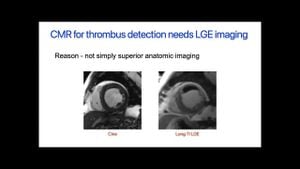Proud dental students at Hannover Medical School (MHH) have received the prestigious Golden Hedström File award for their exceptional work during studies, marking significant accomplishments for recent graduates. Dana Büsch, Anne Robke, and Ramona Stölk, each newly qualified dentists, were commended for their outstanding performances particularly pertaining to root canal treatments. Professor Nadine Schlüter, head of the MHH Clinic for Conservative Dentistry, and Dr. Peggy Herrmann, who guided these students through their training, presented the awards.
"We are very proud of this award and congratulate our three former students on this special success," said Schlüter. The Golden Hedström File, awarded annually by the journal Endodontie, recognizes students who have excelled at challenging endodontic procedures. These dedicated graduates successfully managed complex cases under the rigorous training provided at MHH. Their hard work reflects not only personal achievement but also the excellent instructional support offered throughout their studies.
The outstanding achievements included difficult treatments where previous interventions had posed complications. For example, Büsch’s patient had previously endured problematic dental work but was successfully treated following her timely intervention involving root canal therapy. Similarly, Robke utilized advanced techniques and tools, such as an endodontic microscope, to successfully treat obstructions caused by clogged canal pathways.
Following assessments of their work, Dr. Herrmann deemed all three treatments worthy for submission to the award jury, achieving positive recognition. The awards not only offer certificates but also provide the winners with book prizes, fostering their professional journeys as they step onto the beginning of their careers.
Meanwhile, MHH researchers have turned their gaze toward the future of healthcare, exploring the integration of artificial intelligence (AI) within medical practice. A significant project named "My Doctor, AI and I" led by the Institute for Ethics, History and Philosophy of Medicine reflects on the changing dynamics of doctor-patient interactions due to AI's growing presence.
The project highlights ethical, legal, and practical concerns relevant to AI’s role and its ramifications on medical care. "AI should not be perceived as the omniscient colleague; rather, it should augment the human decision-making process," explains Dr. Frank Ursin, the project's manager.
Participants from diverse backgrounds, including 170 citizens and healthcare professionals, engaged in discussions aimed at identifying the course of action necessary for both patients and doctors amid rapid technological advancements. The results are four key recommendations for each group, aimed at fostering communication, building trust, and ensuring patient autonomy.
Among the recommendations for patients is the importance of actively engaging with AI technology, expressing the need for clear explanations from doctors about AI’s role. Understanding the strengths and limitations of AI tools allows patients to feel supported and enhances their role within their healthcare decisions.
For doctors, accountability remains imperative. They are encouraged to familiarize themselves with AI functions and to openly communicate with patients about the applications of AI, enhancing informed patient responses. The dialogue surrounding AI enhances transparency and encourages comprehensive patient comprehension, which lays the groundwork for informed consent.
With training opportunities also recommended, MHH aims to empower practitioners to integrate AI effectively and ethically within their treatment regimes.
Lastly, recognizing the importance of connectivity for employees and patients alike, MHH is facilitating transport services amid public transport disruptions. On Tuesday, February 25, 2025, the MHH has organized free shuttle buses between the Karl-Wiechert-Allee stop and the medical campus from 5:30 AM to 5 PM.
Due to local public transport strikes, the traditional bus service will not be operational. MHH is stepping up to assist patients, visitors, and employees to maintain access to health services smoothly, highlighting the institution’s commitment to patient care.
Attendees can still reach the shuttle service via existing S-Bahn lines, including the S3, S6, and S7 trains servicing the area. This initiative aims to minimize disruption and uphold the hospital's ability to serve the community efficiently.
Through commendation of the students at its dental school, forward-thinking research on the incorporation of AI, and the provision of alternative transport, Hannover Medical School showcases its dedication to maintaining excellence and adaptability within its educational and care environments.



